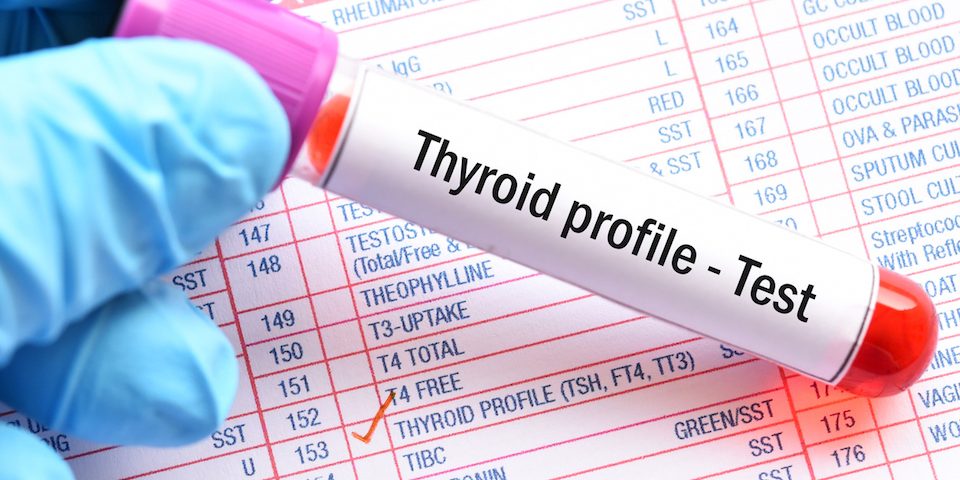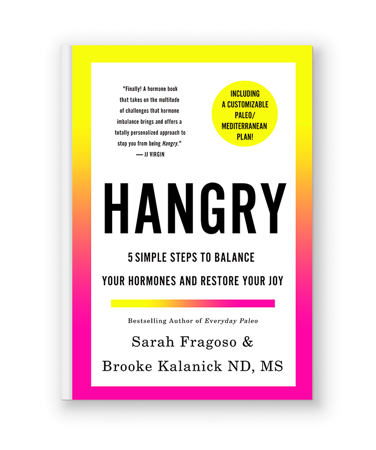
On any given day, my inbox is chock full of emails containing a laundry list of symptoms from frustrated women about how they feel exhausted, can’t lose a pound or can’t stop gaining weight, feel their head is stuck in a cloud of fog, think they are may be a little (or a lot) depressed, are often quite a bit bloated and sadly, “just not feeling like themselves”.
Most go on to say they’ve had their thyroid evaluated and have been told “everything is normal” or “nothing here that would make you feel this way…..” Also, most of these emails start with, “Hi Dr Brooke. I have Hashmoto’s and ….” Well right there, I see the problem. When it comes to Hashimoto’s your labs just plain do not tell the whole story of you, your symptoms and why you’re feeling so lousy.
And it’s too bad because labs are an objective way to get some data to steer you in the right direction to feel better. However, in the case of Hashimoto’s they miss oh so much of your story.
Here’s a few reasons why they fall so short
There is much discrepancy when it comes to “having you thyroid evaluated”
Typically a screening test for elevated TSH is all that is performed. This alone leads to several issues including disagreement among docs as to what qualifies as “elevated’ and the fact that a lower TSH, below 1.8 (but not extremely low, closer to 0) is still an issue. I talked about the Trouble With TSH in this post.
TSH only testing will not show how much active hormone you have or if you are having a host of problems with the activity of your thyroid hormone ranging from conversion of what your thyroid makes to what your body uses (T4 into T3), how much of that is free and available for action (i.e. estrogen or testosterone issues causing too much or too little free, active T3 to be available – both causing low thyroid symptoms ).
Get you FREE copy of my Guide To Lab Testing & Your Hormones
This guide covers hormonal testing and thyroid patterns and will show you how to suss out the Hormonal Dealbreakers of inflammation, anemia and blood sugar problems.
Get Your Free Lab Guide HereAnd remember that antibodies can be positive for up to ten years per research (perhaps longer) before low thyroid hormones, elevated TSH, etc. will show on labs – thus deeming you hypothyroid. In this scenario (positive antibodies – TPO or TG) and otherwise normal thyroid tests, you have Hashimoto’s but you are not at this point in time hypothyroid.
Why would that matter?
Because positive antibodies are markers for future thyroid disease and positive antibodies mean two very important things in my book:
#1 Let’s start working on prevention to protect your thyroid and delay meds if possible or prolong your time not needing them (i.e. keep you normal thyroid for as long as possible). And #2, autoimmunity isn’t a thyroid exclusive problem. Positive TPO and TG antibodies mean that you have autoimmunity at the location of the thyroid, but they also mean that you have autoimmunity.
“Having autoimmunity” means that you have an immune system that’s off the rails and attacking tissue that belongs to you inappropriately – and we want to know about that! We want to be on the look out for other autoimmune issues and again, get back to work calming your immune system and preventing further tissue damage on the thyroid or any other tissues possibly under attack.
However, interpreting and utilizing your antibody levels can get tricky real quick, here’s why: + Lab Ranges, Symptom Severity and “Normal” Fluctuations
It can seem so confusing to even know if you have Hashimoto’s because your friend had a TPO value at 11 and was told she had Hashimoto’s, but you are also at 11 and told you do not. HUH? And someone at 400 may feel fine where someone at 40 may be unable to get out of bed.
So, what do these antibody levels even mean?
First, lab ranges are not standardized across the country, nor is lab equipment calibrated the same from lab to lab so you have to go by the lab range on the report from the lab that ran your test. If your lab’s range is 0-34 for TPO then you are not considered to have Hashimoto’s at 11. But if your girlfriend from another state has a range of 0-9, then she is considered positive at 11.
Confusing, I know. And yes some level of antibodies are considered normal. If you have a level of 3 or 5 and your lab range has top end of 34 you are still considered normal and do not necessarily need to be on the look out for Hashimoto’s more than the next girl. However, if your level is 33 and your lab cuts of at 34, then I’d keep en eye on you.
Order Hangry right now!
If you’ve ever felt like a Hangry B*tch and are ready to balance your hormones and restore your joy in just 5 simple steps then Hangry is for you!
GET YOUR COPY NOW
I would be following up in a few months – especially if you have a low WBC (white blood cell count below 4.5 or so).
If your immune system is functioning on the low end you may be having immune activity but you’re too wiped out to show enough antibodies to get a positive test. This can be the case if you have any ongoing, chronic infections like EBV or herpes type viruses as well as longer term, low grade gut infections or have been under chronic stress. How about how high is a problem when it comes to these antibodies? You aren’t necessarily “sicker” if you have a TPO reading of 1050 vs. 50.
You are though having a lot of immune reactivity and thus a lot of antibodies, but symptoms don’t always correlate as autoimmunity simply looks different from woman to woman.
So know that you can feel terrible while you are barely considered positive and you can be shocked to hear you have Hashimoto’s when you feel fine but have off the chart antibodies. This is in part the trouble with using antibodies to monitor your treatment, as so many practitioners do. Or say that you are “better” when they come down. While it’s true that a decrease from say 500 to 100 is movement in the right direction but we have to remember they antibodies are not always stable with Hashimoto’s because of everything that I just mentioned as well as the fact that Hashi waxes and wanes, has flares and calms back down. We have to remember that when we try to interpret your antibody levels and how that may correlate to your progress and changes to your treatment.
Ready for one more confusing scenario? Here goes…
Normal Thyroid Testing BUT Positive Hashimoto’s Antibodies and Loads of Low Thyroid Symptoms
Symptoms like depression, fatigue, difficulty losing weight, brain fog, digestive issues can be symptoms of a sluggish thyroid but they are also symptoms of inflammation. The immune activation from Hashimoto’s itself can cause a lot of hypothyroid-like symptoms even when you are not yet hypothyroid per those thyroid labs.
I know, really, really confusing! Especially because you can have Hashimoto’s present (aka positive antibodies) for a long time without testing low thyroid (i.e. TSH, T4, etc are still normal). During this time women are often feeling so hypothyroid but they don’t need medication, so how can a girl go about feeling better? Quiet that immune system and quell the inflammation, this lifts the fog and can help you feel normal again.
This aspect is so overlooked if we get trapped in the medication model: do you need meds or a bump up in dose or not? That’s it. There is no really great conventional treatment to quiet this but there is a lot in the nutritional and lifestyle realm you can do, so don’t give up!
And finally remember with both Hashimoto’s and just your thyroid cascade there are so many other hormones at play. Blood sugar, inflammation, adrenal health, estrogen, progesterone, brain chemistry, anemia, and the list goes on. There is a reason your endocrine system is often described as an intricate web – it most certainly is! Putting stress on one part of your system can and will create imbalance in another hormone.
Order Hangry right now!
If you’ve ever felt like a Hangry B*tch and are ready to balance your hormones and restore your joy in just 5 simple steps then Hangry is for you!
GET YOUR COPY NOW
I hope this post answers many questions that you may have about what often feels like the mystery of figuring out if you have Hashimoto’s OR if it’s causing you to feel badly. Be sure you’re also following me on Facebook where I post about thyroid and Hashimoto’s regularly and get on this email list for exclusive, thyroid related content and be the first to know about my upcoming Hashimoto’s webseries.
And if you haven’t already downloaded them, be sure you have these two free thyroid reports: 5 Facts You Need To Know About Hypothyroidism 5 Hypothyroid Problems Your Doc Is Missing
